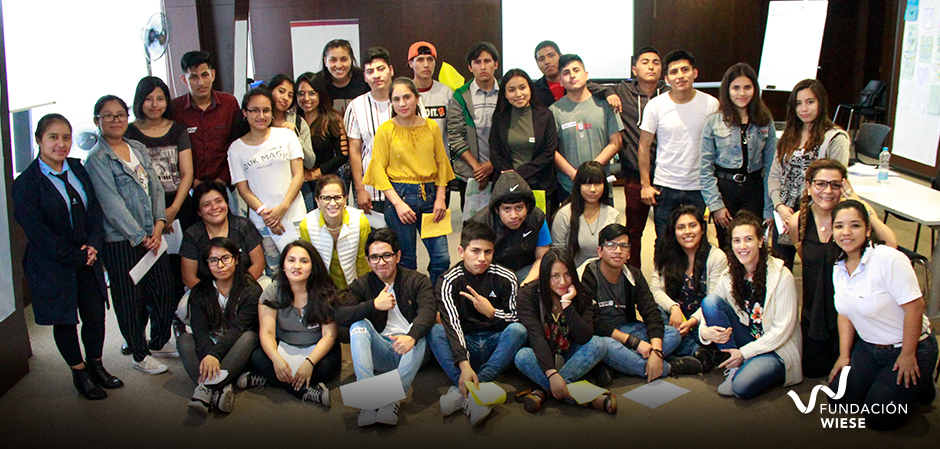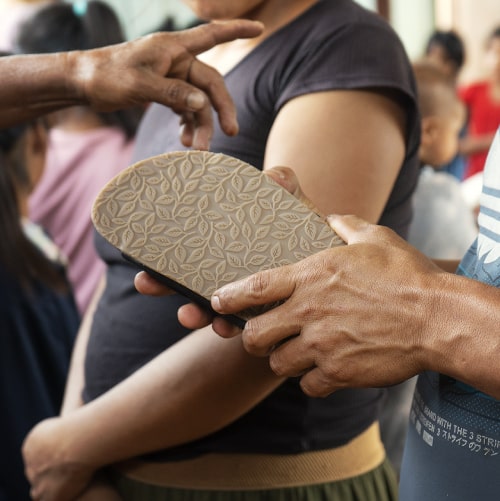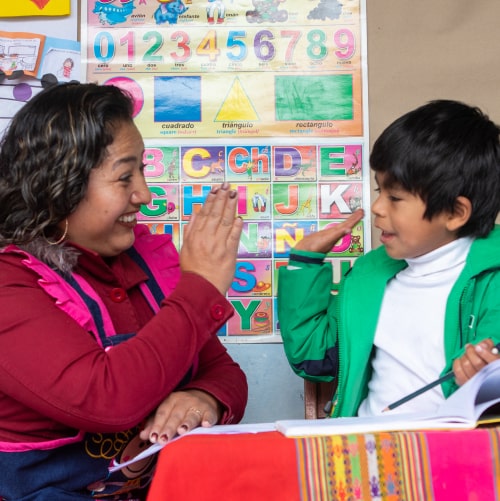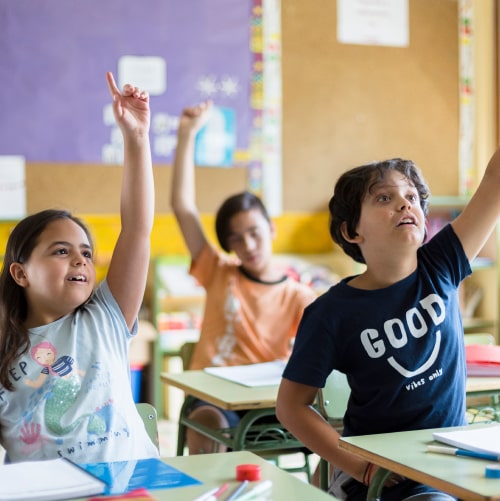Thinking, believing, dreaming and daring are the four keys that give life the strength that’s necessary to achieve a purpose. Because everything borns from a thought, an idea, believing in it, dreaming that’s possible and daring to do it. This life plan is what dozens of SENATI students, who participated in the “Think, believe, dream and dare” workshop organized by the Wiese Foundation Educational Credit Program, learned.
The workshop aimed to strengthen the tools that students learned and developed during the year. The event was attended by professionals such as Liseth Leiva, a gestaltic psychotherapist, who was the facilitator of the workshop, and noted that young people have enormous potential to use these tools individually and socially.
“In this workshop, students connect and believe in themselves, learn to express and share what they’ve learned. The purpose is that they dare to achieve their dreams”, states the professional.
Wiese Foundation hand in hand with IPFE
Angélica Vidal, psychologist, gestaltic psychotherapeutic, with more than 8 years in IPFE (Peruvian Institute of Educational Development), is the one who coordinates the accompaniment program for the beneficiary students of the Wiese Foundation Educational Credit Program.
“The program workshops encourage the development of self-esteem, motivate young people to find themselves, to reflect where they come from, and those who in the face of all needs, have not stopped studying to forge a future,” he says.
It’s about the boys and girls who aspire to a technical professional career, from the most humble strata, but with an energy of spirit that drives them to climb to the top, willing to become real agents of change.
Testimony of the beneficiaries
Marifé is 20 years old and studies graphic design at SENATI, she says she was desperate to pay for her studies and didn’t have the money. She learned about the Wiese Foundation Educational Credit program through his tutor. After meeting the requirements, today she is a beneficiary of the program and has the facilities to finance the educational loan. “I thank all the people who have created this program because it is a great help for those of us who want to study”, says Marifé.
Until a while ago, Rodrigo worked at night in a gas station, and in the morning he studied industrial electronics in Senati. The pace was exhausting, until he learned of the program by the psychologist of the study center.
“I didn’t have the financial support to pay for my career, but thanks to the Wiese Foundation I will be able to complete my profession”, says Rodrigo, very excited.
César is another young man who studies software development and there was a time when he was about to drop his studies due to lack of money. “The same day I decided to stop studying, I saw a notice from the Wiese Foundation Educational Credit, thanks to them I can keep studying and this year I will finish my career. It is good that the Foundation also offers talks and training that help students grow, both personally and professionally. ”
What is the Wiese Foundation Educational Credit Program?
“We believe that solidarity is capable of transforming people’s destiny and we work for equality in access to opportunities for all Peruvians; we believe that this Educational Credit Program is a concrete way to prove it”. Augusto Wiese Moreyra, a member of the Director Board of the Wiese Foundation, said that this institution has destined a revolving fund of $250,000USD to finance the continuity and successful completion of the studies of young people with limited financial resources who study professional technical studies.
The Wiese Foundation Educational Credit Program, operated by IPFE, is aimed at low-income SENATI students and seeks to reduce the dropout rate and meet the unsatisfied demand of qualified technical professionals required by the country.
How does this program work?
“Through the SENATI tutors, we are visiting the students and establishing contact with their parents. They tell us their economic, health or separated parents’ problems. They are people who work informally and have no way of showing their income. It is a, somewhat, complicated task, but we give the facilities through an affidavit, indicating the work they do. Then comes the evaluation process that takes between five to ten days. Finally, the results are given”, says Carolina Boza, IPFE credit analyst, who also participated in the workshop.

Ambassadors of educational progress
The goal of the Wiese Foundation Educational Credit Program is to grant 160 credits. In this way, we contribute to avoid resignation for economic reasons and reduce the great unsatisfied demand that exists in the labor market by qualified technical professionals.
Besides of the financing offering to social conditions, the Wiese Foundation Educational Credit Program enhances the socio-emotional skills of its beneficiaries, through a component of personalized support and workshops, thus facilitating its rapid and successful labor insertion, after completing its studies.
Last year there were twenty young beneficiaries and this year there are 114, demonstrating the success of the program, which has allowed these children to be true ambassadors of educational progress. If you want to know more about the Educational Credit Program, we invite you to follow the following link: bit.ly/EducationalCreditsFW









